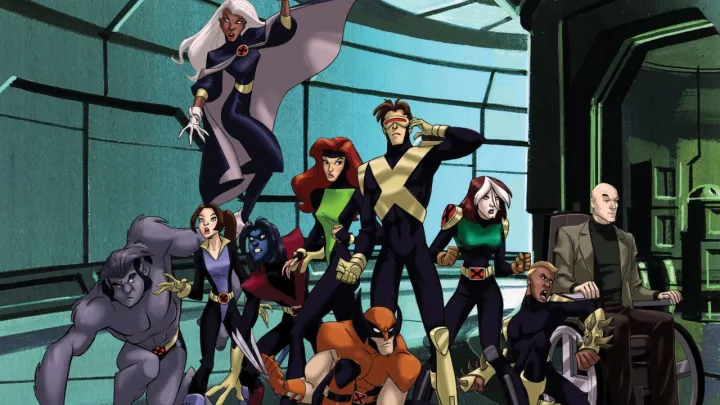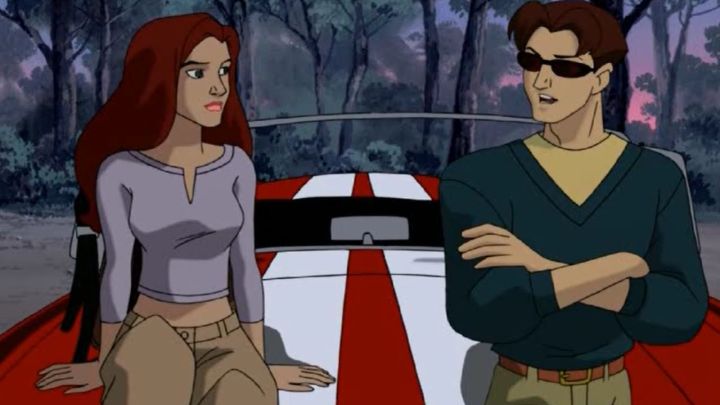One of these days — although no one knows for sure when — the Marvel Cinematic Universe will announce that the X-Men will finally join its ranks. The team of mutants, who were Marvel’s bread-and-butter for years, have long been teased for the MCU, but the studio’s honcho, Kevin Feige, has been infamously noncommittal to setting a date. And with the MCU currently going through a rough patch — it recently hit the brakes on many upcoming projects amid a critical and fan reckoning over the notoriously uneven Phase 4 — the X-Men’s eventual arrival seems like Feige’s last priority.
The X-Men were once fans’ top priority, especially after post-pandemic projects like the stellar WandaVision and the divisive Doctor Strange in the Multiverse of Madness featured some crucial mutant characters. However, it now seems blatantly clear the mutant team will not officially arrive until after the current Multiverse Saga is done — and it’s for the best. The X-Men is a sprawling and complex team of unique and iconic characters that deserve the spotlight — let’s call it the Mutant Saga. The MCU has plenty of material to use as the basis for an adaptation — from iconic comic book storylines to animated shows that perfectly capture the team’s intricacies. However, one particularly underrated project deserves the chance to inspire the MCU’s version of the mutants: X-Men: Evolution, an animated gem from the 2000s. Fans of the acclaimed, but underappreciated Kids’ WB series already know why it’s the perfect choice for the MCU to adapt, but for the uninitiated, here’s a quick breakdown.
Growing up mutant

The heart of most X-Men storylines has always been the overwhelming and intense prejudice that the Marvel universe has for mutants. Created at the height of the Civil Rights movement, the X-Men have always mirrored real-life injustices suffered by minorities who can’t help but be that which their enemies hate: themselves. However, another interesting, often-ignored, and fascinating aspect of the X-Men is how they cope with their abilities in a world that doesn’t understand them and actively works against them.
X-Men: Evolution brilliantly dealt with the latter. By placing its characters in high school, the show showcased the everyday struggles of Marvel’s most powerful mutants without turning into an after-school special. Having powers was just another situation these teenagers had to deal with, much like romantic issues or peer pressure. It’s incredible how well the mutant storyline went with the high school setting, to the point where it’s weird no one ever thought of blending them before Evolution.
The show also found clever ways to introduce the usual X-Men themes — prejudice, intolerance, fearmongering, and paranoia — into the high school setting by using the teen genre’s favorite tropes. High school bullies became bigots, the outcasts became the Brotherhood of Evil Mutants, and so on. The show also tackled new social issues by featuring quasi-coming-out scenes where the teens revealed their powers to their loved ones, with mixed results. X-Men: Evolution found new and intriguing ways to expand the team’s lore and legacy, resulting in a richer, nuanced, and surprisingly layered portrayal of mutantkind that not even the best X-Men movies achieved.
Getting the characters right

X-Men: Evolution should receive all the praise in the world for getting two of the most difficult characters right. Jean Grey and Cyclops (aka Scott Summers) are among the most recognizable members of the X-Men; they often act as the team’s de facto leaders and are a crucial parts of the team’s lineups in the comics and most adaptations. However, many of those adaptations get them terribly wrong, portraying Cyclops as a boring one-note dud, like in the Fox movies (apologies to the otherwise awesome James Marsden). For her part, Jean struggles to feel like a fully realized character, often coming across as the team’s token female who is there to meet a diversity quota.
But Evolution gives Jean and Scott clear and defined personalities that make them compelling, relatable, and alive. Scott was the leader he was always supposed to be, with his perpetual sense of duty clashing with his selfish desires to pursue romance and live the life of an ordinary teenager. Unlike other projects that sideline Scott in favor of the gruff and admittedly more appealing Wolverine, Evolution does the opposite, placing Scott front and center as the X-Men’s beating heart. Evolution‘s take on Scott is so good that it isn’t an overstatement to say it’s the best version of the character in any medium outside the comics.
As for Jean, Evolution is a pallet cleanser after the outright pathetic version featured in the ’90s gem X-Men: The Animated Series. Whereas the Jean from the ’90s was, for lack of a better word, useless, the one in Evolution is assured, confident, resourceful, and a key member of the X-Men. Jean is powerful, but it’s not her mutant abilities that define her, which is particularly noteworthy considering many versions of the character portray her exclusively in relation to the Phoenix Force. But Evolution doesn’t even feature the Phoenix Force, thus allowing Jean to flourish as her own character rather than a narrative device.
Evolution also takes some inspired license with certain characters, turning Rogue into a Goth loner, Shadowcat into a flirty princess, and Iceman into the class clown. By taking such bold risks, Evolution revealed new sides to these classic characters that audiences might have never seen had the show stuck to the classic characterizations that most adaptations seem to hold sacred.
Avengers who?

It’s the question on everyone’s minds: How will the X-Men coexist with the MCU’s established team of heroes, the Avengers? The groups have been notoriously at odds with each other for decades of comic book continuity; they aren’t enemies, but they often find themselves opposing each other, whether because of their stance on mutant issues or because of their different approaches to issues like justice, secrecy, and the role of superheroes in everyday life.
Comic books have dealt with these two groups by largely keeping them separated. The X-Men have lived in a weird bubble of prejudice and hatred for decades, suffering injustices and crimes that other Marvel heroes have never imagined in their worst nightmares. Whereas the Avengers are Earth’s Mightiest Heroes, the X-Men are outright pariahs, with no real reason for the divide other than: “ew, mutants bad.”
Portraying the X-Men as teenagers would allow the MCU to introduce a real, logical reason behind the teams’ different ideologies; the Avengers have grown up largely acclaimed and beloved by the masses, while the X-Men are rejected and feared because of abilities that come naturally to them. The X-Men won’t be mythological gods, super soldiers serving their countries, or geniuses in suits of armor; instead, they’ll be hormonal teens with massive power bestowed upon them by … what? A higher power? Biological evolution? Fortune? The plots write themselves.
The X-Men being teenagers would also allow for an intriguing storyline about the new generation versus the old guard. The Avengers had their time in the sun and had several triumphs and numerous disasters; the X-Men would be the heirs of that troubled legacy, dealing with the consequences of the rights and wrongs of those that came before. The storyline would mirror the real-life divide between Baby Boomers and Gen Z without beating the audience over the head with preachy social messages.
Lastly, having the X-Men as teenagers would allow the MCU to have a clear divide between them and the Avengers. Fans have long wondered how two super teams would coexist, especially as the MCU begins to feel too crowded. Teenaged X-Men would have a singular and refreshing dynamic that would make them feel unique in a universe of gods and monsters. Even the Young Avengers — if they ever assemble in the MCU — would feel like afterthoughts of the Avengers; however, the X-Men would be truly special, bonding over their shared situation in a world where they literally cannot depend on anyone but themselves.
Smells like teen spirit

The X-Men will undoubtedly be crucial players in the larger MCU once they eventually arrive. However, the franchise needs to take a big swing if it wants them to stand out in its already crowded universe; turning them into teenagers is a bold choice that will upset many, but can also set the stage for the MCU’s next decade or so.
It’s not like we haven’t seen teenage mutants before. X2: X-Men United, arguably the best X-Men movie so far, spends a considerable portion of its runtime following an older Wolverine caring for a teenage trio of mutants, and the storyline was the chief highlight in a film full of them. Now imagine that dynamic, but more detailed and compelling, and you have X-Men: Evolution, a show where Wolverine acted as the grumpy uncle to the teenage heroes, creating a surprisingly endearing relationship that brought out the best in everyone involved.
X-Men: Evolution might not be the most popular X-Men adaptation, but it might be the best. And with X-Men: The Animated Series already getting a much-publicized revival coming to Disney+, it’s only fair that Evolution gets its time in the sun. After all, who wants to see another middle-aged superhero going through an identity crisis? We already had a decade of those; bring on the teenage spirit, but make it mutant.



